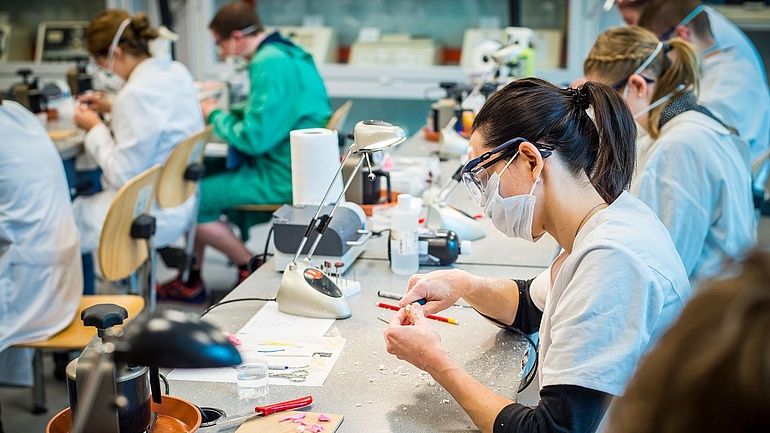The Skilled Crafts Sector

Foto: biha/Olaf Malzahn
The skilled crafts sector is an autonomous economic sector in Germany. With its one million mainly small and medium-sized companies and approximately 5.7 million employees, Skilled Crafts are at the heart of the Germans economy. They provide vocational training in 130 different trades ranging from: building and finishing, electrics and metalworking, wood- and plastic-working, clothing, textiles and leather, food, health and personal care, to chemicals and cleaning, and graphic design.
Whether for private customers, industry or trade or the public sector, the German skilled crafts offer a wide range of goods and services. Each and every day, the sector is called upon to perform millions of tasks for customers throughout Germany.
In the companies skilled craftsmen are the driver of innovation in craft companies, for business or technical developments. Skilled craft companies are supported by a strong skilled craft organisation managing and administrating the sector autonomously. A broad-based infrastructure covering IVET (apprenticeships), CVET, technology transfer, advisory services and lobbying structures is there to provide skilled craft companies with orientation and know-how, helping them to face tomorrow’s challenges. New technologies and a continually changing social and political environment all require companies to have a high degree of adaptability.
As a major economic and social player, the German skilled crafts sector exerts a considerable degree of influence. The sector has for example strong societal ties, to religious, cultural, sports or civil protection organisations. Voluntary work is in the DNA of companies closely tied to their regions. In rural areas, skilled craft companies have a long tradition as local suppliers. Similarly, they strive to maintain an area’s cultural heritage, especially in the context of heritage preservation. In the field of integration, the German skilled crafts sector is also a key player, taking on this societal responsibility with great commitment.

